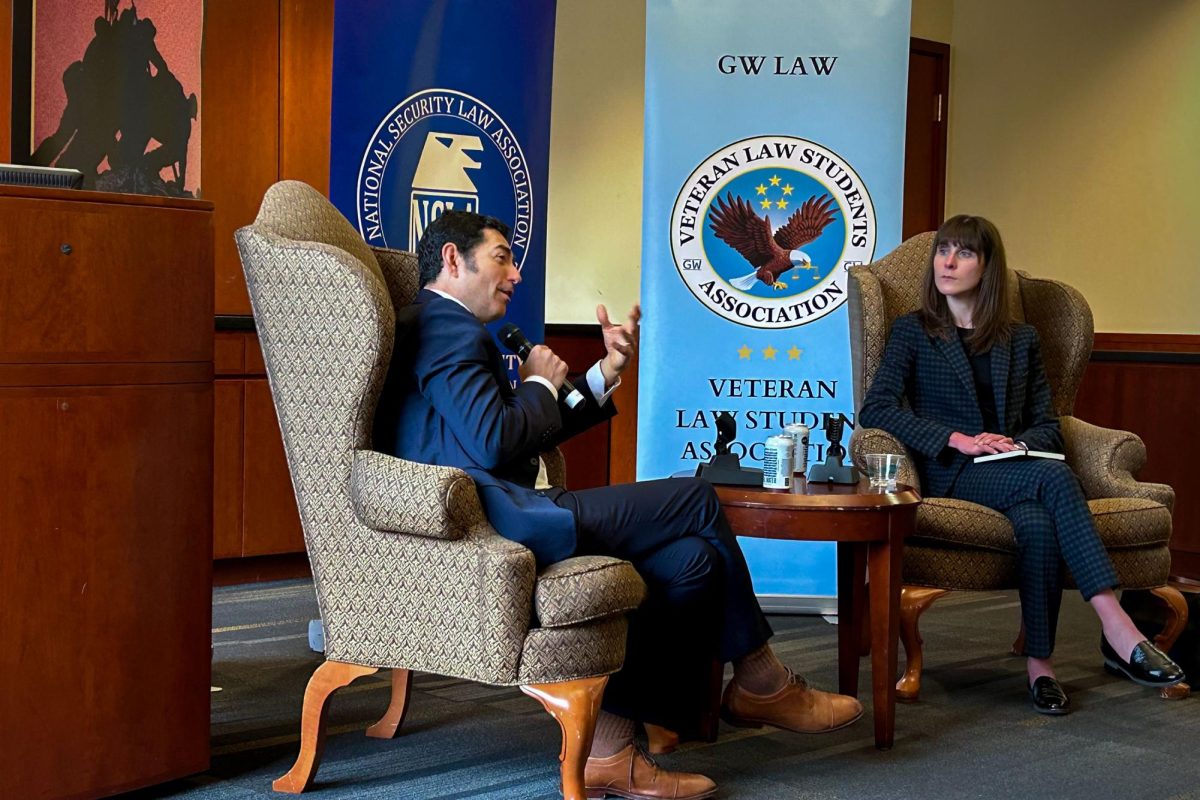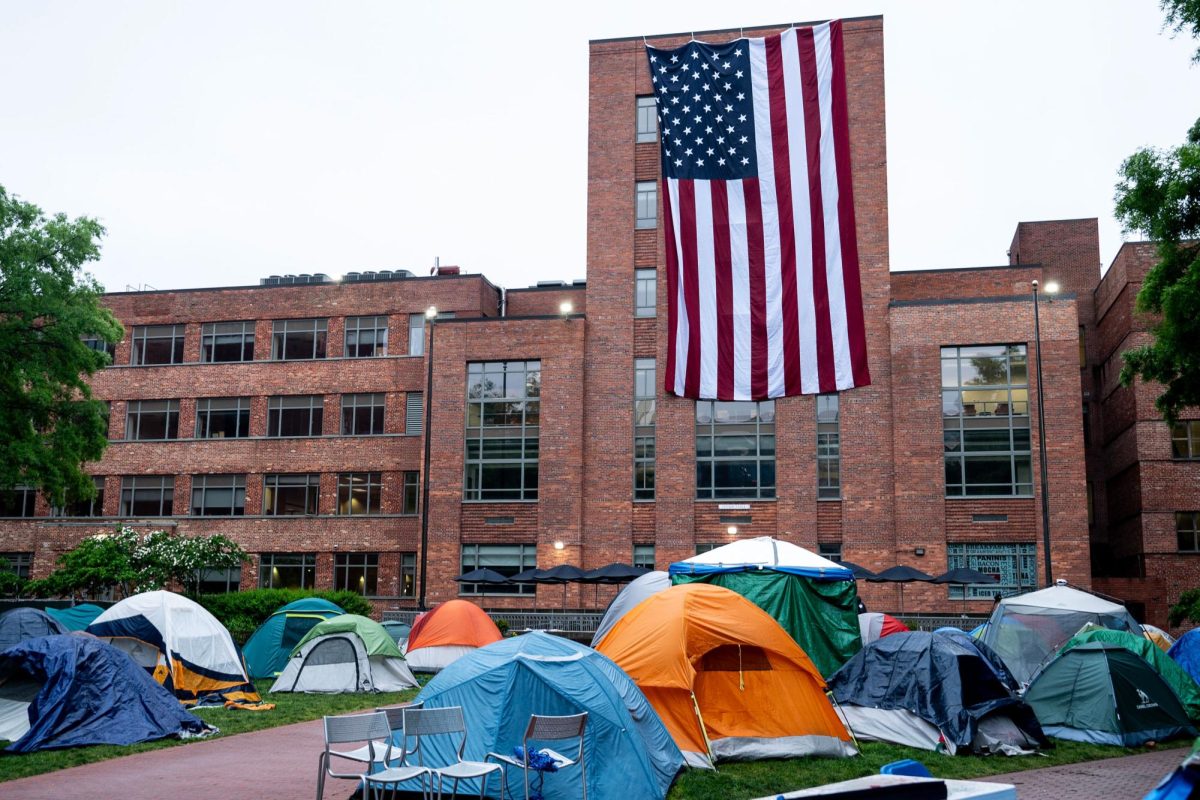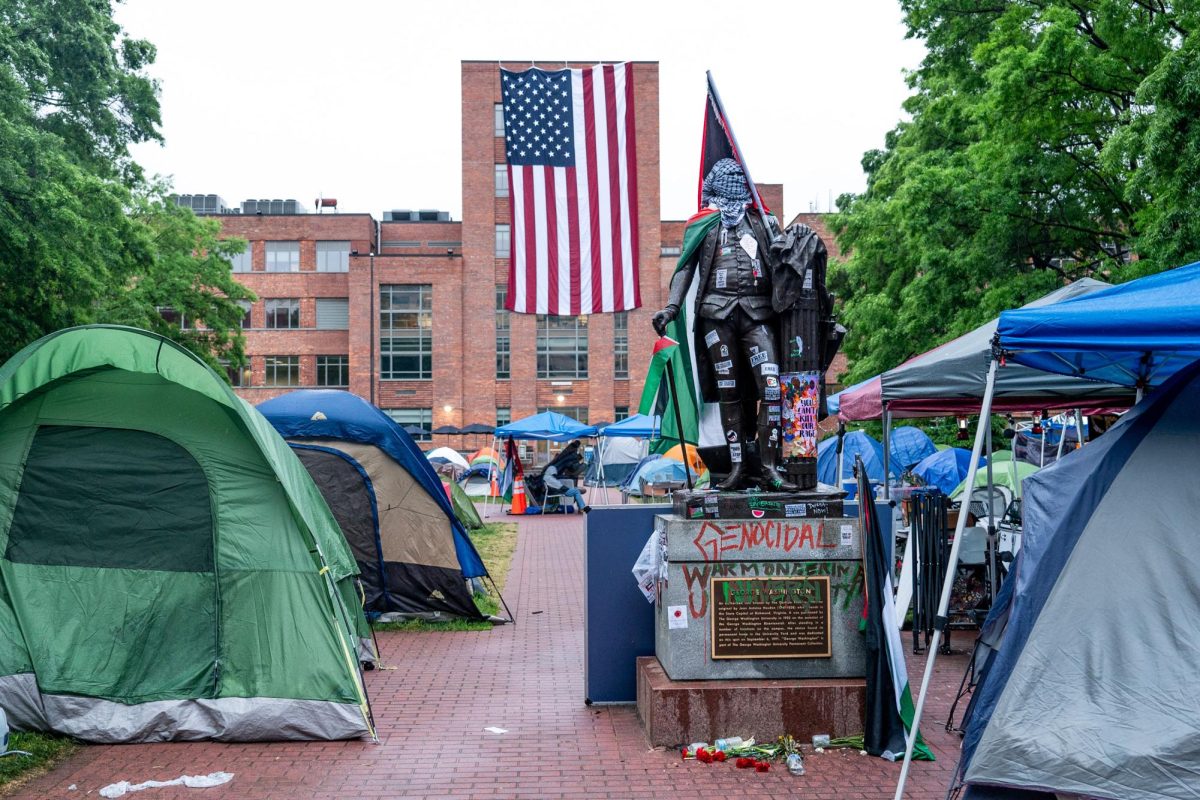An expert in international peace and artificial intelligence discussed balancing regulation with the rapid advancement of AI at the GW Law School Student Conference Center on Tuesday.
Mariano-Florentino Cuéllar, the 10th president of the Carnegie Endowment for International Peace and a former California Supreme Court justice, said the federal government should defer to states to customize AI regulations to their residents’ needs to strike a balance between law and innovation in the United States. The GW Center for Law and Technology hosted the conversation with associate professor of law Alicia Solow-Niederman.
Cuéllar said he and others in the international community are concerned AI models are aiding the development of technology like biological weapons with malicious intent. He said he worries claims of AI misuse might lead to strict regulations that hinder its positive development.
Cuéllar said it will be difficult to promote AI’s benefits — like its ability to expedite the education and development of medical professionals — while preventing others from harmfully using the technology. He added that recent studies report a global shortage of 6.4 million doctors that “need to be pulled out of thin air.”
“You want to develop a system that will weed out the good and the bad actors,” Cuéllar said.
Cuéllar said national and international discussions about AI often focus on security, reliability and competition, but uncertainty about how AI will affect most people, like its potential impacts on democracy, culture and even dating, is left unaddressed.
Cuéllar said policymakers at all levels, from local governments to international institutions, need to enforce “guardrails” on AI’s information pool to protect everyday consumers from misinformation and prevent misuse. State and municipal governments may be better positioned than federal governments to institute regulations for everyday AI usage because they can better tailor laws to local needs, he added.
“We are working on pulling together a working group so states can collaborate and share ideas about AI,” Cuéllar said. “That’s where some of the most interesting conversations are happening right now.”
Cuéllar said he cautions Congress from imposing federal AI regulations because they may limit the ability of tech startups to compete internationally against countries with more liberal AI regulations. Those who want to limit AI usage don’t see the negative effects that it could impose on the country’s developmental and economic competitiveness, he said.
“You can’t have your cake and eat it too,” said Cuéllar. “You can’t be on the cutting edge and also constrain it.”
Cuéllar said the most significant potential threat of AI to humans is losing jobs to automation. He said he supports regulations like President Joe Biden’s executive order issued last October, which seeks to mitigate AI’s impacts on the labor market.
“It struck a balance between not overdoing things, but also not underdoing things,” said Cuéllar. “It’s a step in the right direction.”
Cuéllar said he remains optimistic that governments can balance AI development while minimizing the risk of job loss. He said he hopes AI will become a tool for humans to work with rather than be replaced by.
Cuéllar said he hopes his organization, the Carnegie Endowment for International Peace, which promotes international cooperation on policy issues like AI, can lead conversations on AI regulations and help create a balanced future for humans and technology.
“My organization is not giant, just around 150 people, and the mission we are supposed to have is to bend the arc of history,” Cuéllar said. “Hopefully, we can do right by our mission.”





